Entrusted with the Future
The last few years have been hard for everyone — but if a recent interview with trustees is any indication, boards of directors emerged from the pandemic with renewed optimism and excitement about the direction their companies are heading. Nadege Souvenir, chair of Minnesota Opera, looked on the bright side with four trustees: Jessica Burton, board member of Opera Columbus; Ryan A. Krause, Ph.D., board member of Fort Worth Opera; Sylvia Neil, chair of Lyric Opera of Chicago; and Arlene Palmer Schwind, president of Opera Maine.
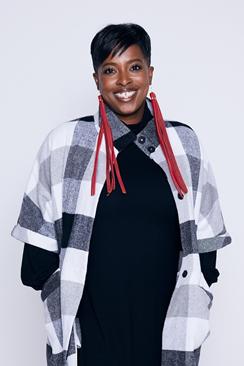
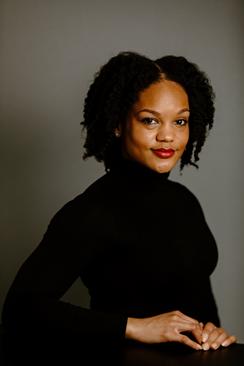
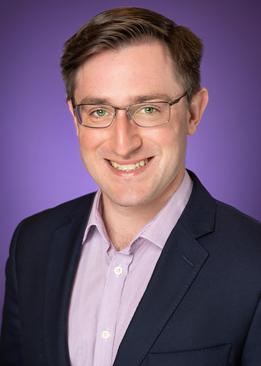
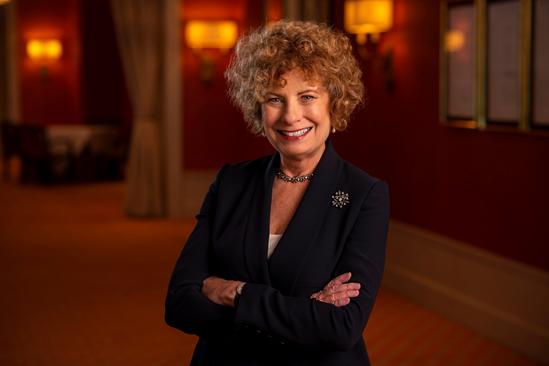
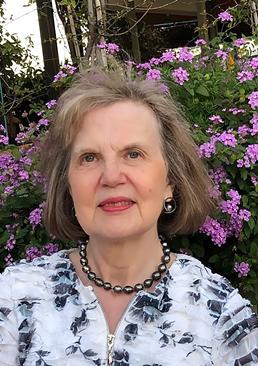
Souvenir: Opera companies saw deep engagement by board members during the pandemic. In what way did your board step up?
Schwind: We have no executive committee, so I created an emergency task force with six trustees right away, and we started meeting regularly with our staff to try to figure out what we were doing. We immediately realized the importance of staying connected with our constituents and decided to do an online series to increase people’s understanding of what goes on behind the scenes in an opera company. We created a 13-week series of 20- to 30-minute interviews with singers, designers, conductors, and others. We incorporated archival video clips from our productions as well as still photos. Board members stepped up to help underwrite this and really got involved in this process.
The gala committee initiated and managed a program of outdoor garden serenades, which we held in the fall of 2020 and the spring of 2021. We were able to pull off a full-fledged gala in 2021 outside in a tent. That was hugely important for the bottom line and everyone’s morale.
The artistic liaison committee, which is composed of trustees, advisory trustees, and production professionals, worked with our artistic director to figure out how we were going to produce an opera in 2021 and which opera to choose. We wanted to present something uplifting, appealing, and financially prudent. We got behind the artistic director’s idea of presenting a shortened version of Elixir of Love. Because we are such a small organization, our trustees did a lot of volunteer work to make that happen.
Burton: Our board was pretty resilient. We have board members who have been on for many years and have seen Opera Columbus through many ebbs and flows, including twice almost not being an opera company anymore. That experience helped us put sustainability mechanisms in place in recent years, like starting an endowment fund, so we would be prepared if we had another financial crisis — which we did due to the pandemic. But this time, we were ready. As a board, we focused on ensuring our staff felt heard and making sure we were in a position to care for the company and our artists who were impacted due to production cancellations. Additionally, we were well into a company transition, as we were in the process of conducting a search for our next executive director during the height of the pandemic. Our board has been an immense support to the company, staff, and fellow trustees, which we are all grateful for.
Krause: Our story is very similar to what Jessica just described. We were beginning a general director search when COVID hit, and we had to put that on hold. Our chair at the time continued to serve as acting general director as we canceled our entire season and our gala and figured out how we were going to get through this.
The board really stepped up and maintained its contributions and support of the company. We organized a virtual masterclass. In the fall of 2020, we began doing these outdoor performances under the label of FWO GO, where singers were standing in a truck bed and singing in parking lots and parks. We did anything we could to get out into the community. We resumed the general director’s search later in the year and hired Afton Battle in September of 2020. She has really been instrumental in giving the company new direction and steering us through COVID.
Neil: I’m really impressed by the way our board stepped up and showed up, financially and emotionally. At the beginning of the pandemic, Lyric was about to embark on a very high profile, exciting time. We were days from opening our very own Ring cycle, which, as you know, is the most expensive opera that a company can produce. We were also about to introduce our new music director, the wonderful Enrique Mazzola, and announce the Joffrey Ballet was beginning residency in our opera house. So we endured a major emotional, public relations, as well as financial loss.
But the board made the decision to not just survive, but to thrive. There’s an expression: Never let a crisis go to waste. Under the auspices of Anthony Freud, we produced one of the most creative alternative seasons Lyric has ever had. We took a whole new approach to marketing. We put ourselves in front of the world in a way that we really hadn’t before with innovative digital and safe live productions in cars and in parks. And this past live season was a smashing success, with sell-out, diverse crowds and heartfelt enthusiasm recognized throughout the city. We are having an amazing renaissance — Lyric is really the hottest ticket in town right now.
Souvenir: How is the morale of your board right now?
Neil: It’s counterintuitive, but morale has never been higher. Board engagement was impressive, and attendance at board meetings on Zoom was very high during the pandemic. Coming together in a crisis and creating in new ways has energized folks. The path ahead of us is going to be very hard. There’s a three- to five-year recovery from COVID, at least. But I think people are proud that we came through COVID creatively, and we are seeing this new and exciting path forward.
Burton: I’m happy to say that things are going quite well. Our board has been truly inspiring to me. We had our first in-person gala since COVID at the beginning of May 2022. It was one of the most phenomenal galas that we've had. It was great to see the entire board together and to be celebratory. Opera Columbus continues to move forward with inspiringly innovative programming that features dynamic artists, attracts new audiences, all while further growing with our Columbus community. And it’s a delight to see fellow trustees, who’ve been on the board for many years, still believe in the company and the direction it’s headed in.
Krause: I think morale is really good right now. Having gone through a struggle like COVID and coming out thriving is always good for morale. Our board, over the course of the last two years, had over 50 percent turnover, which was overdue in many respects. We had people who had been on the board a very long time who were looking to leave but didn’t feel comfortable just leaving. So last year, when I was governance committee chair, our general director and I launched this really aggressive board recruiting effort. We worked with a local organization that connects nonprofits with local people who are looking to get on boards, and we were able to recruit five new trustees. This year we’ve added three. There’s a lot of energy and enthusiasm and interest in getting involved.
Schwind: Our morale has been a little affected because we have lost three people who were very close to Opera Maine in the last eight months — a trustee who was a past president, an advisory trustee, and a founder of the company. But we’re excited to be forging ahead this summer with our original 2020 plan, which was to present The Flying Dutchman in an original production set on the Maine coast in the 19th century. It was supposed to be part of the Maine bicentennial celebration of 2020, so we’re very pleased that we’re going ahead with that and following up with a lot of the plans and the partnerships we had in place.
I think having in-person meetings again has been very important. Zoom meetings actually increased board attendance, but the technology could be trying. We welcomed three new trustees in February who have brought new energy to the group. Having just had a successful gala and then looking forward to our summer season, we are optimistic. I’m really so impressed with our trustees’ dedication to the company. They’re so willing to take on and try new things while being very mindful of our fiduciary responsibilities.
Souvenir: What are your priorities for the coming year?
Schwind: One of the things we’re doing is rebooting our committee work. We’ve all been so focused on getting through the last two years that some of the committees got put on hold. We created a new staff development position during the pandemic, as well as a development steering committee to work with that person to get the board engaged in concrete ways in fundraising. We’re planning to update our strategic plan. Finally, we’re involving the board in the concept of improving our audience experience. There’s an ad-hoc committee to plan some specific things we can do to make people feel welcome when they come to our events and productions this summer, from ticket buying to parking to everything else.
Krause: I formed a DEI working group and tasked one of our new trustees who is a professional in that space to lead that effort. The first stage of that was completed in March, and the board approved a page-and-a-half-long document explaining what our commitments are going forward. I also started a strategy working group. I’m not big on using the word “planning.” Especially with COVID, we saw how plans can change. To me, it’s more about who we are, how we’re going to create value in the community, and who we are creating value for. We’re in the throes of finishing up a three- to five-year strategy plan right now.
Souvenir: Ryan, your company has pivoted under a new leader. You’ve had several board members leave and you’ve gained new ones. How are you changing the culture of the board to provide a foundation for the company in these and other new pursuits?
Krause: Culture change starts with recruiting and being intentional about talking to new potential trustees about what the intended direction of the company is. We put in place a more structured recruiting process than had been used before. You had to submit an application and resume. When we got an application, Afton and I would meet with the person for a first interview. Then they would meet with the governance committee for a second interview. Sometimes there was a third interview in there and then the governance committee would nominate the person and the board would vote on them.
Souvenir: Sylvia, you are your company’s first female board chair. I would love to know what that means to you.
Neil: While I’m the first woman chair of Lyric, Lyric has a history of leadership by very strong women. The renowned general directors Carol Fox and Ardis Krainik forged the way on the professional side. We have strong women civic leaders on our board and a strong women’s board. And there are now sister chairs at major Chicago cultural institutions, which is very exciting. As the first woman chair of Lyric, I am particularly committed to IDEA — inclusion, diversity, equity, and access — with emphasis on our board, staff, vendors, and contractors as well as artists and productions. I am proud that this past year, when we opened on our stage, it was an exceptionally diverse season in every way. I thank Jane Pigott and Eric Smith for initiating a special board committee committed to IDEA. We are keeping our foot on the accelerator.
Souvenir: You have all shared so many adaptations your boards made during COVID. Of all those things, what do you think you are going to keep and what are you going to let go?
Neil: I think we will create a new balance of Zoom meetings and in-person events. We hope to keep people engaged wherever they are while also building community and relationships. Most importantly, we will keep opera safe. I hope that the day will come when the pandemic will be behind us and we can eventually forego mandatory masking.
Schwind: Last year, our studio artists presented As One. For the first time, we had a string quartet rather than our usual piano accompaniment, and that was very successful. It elevated the whole production value of our studio artist program tremendously. We also had a community discussion about the production and were able to livestream it, which was a big deal for us. This year with our studio artist production, we are going to have a 13-piece orchestra. I hope this growth in the performance aspect of our company will continue. I think I can probably speak for all of our board in saying they would be very happy to have the end of Zoom. [Laughs]
Burton: I hope we will continue to grow our audience with continued performances of contemporary works in addition to traditional opera. That was the topic of many conversations leading into the pandemic: How do you keep the essence of opera and yet still keep it growing as a meaningful body of work? I hope we will continue to be innovative in how we reach our audiences. We’ve utilized social media, grown our social and virtual audiences, and developed strategic ways for the Columbus community to get to know opera and Opera Columbus in new, fun, and experiential ways. Ultimately, I hope we let go of old perceptions of what an opera, and even opera companies, have been. There’s so much more to us and we look forward to sharing it.
This article was published in the Summer 2022 issue of Opera America Magazine.

Nadege Souvenir
Nadege Souvenir is the board chair of Minnesota Opera and COO of the Saint Paul & Minnesota Foundation.





